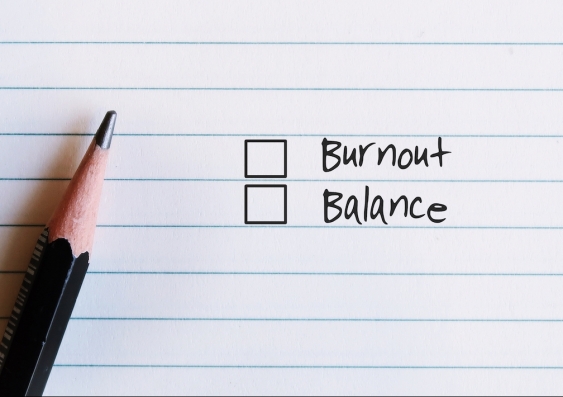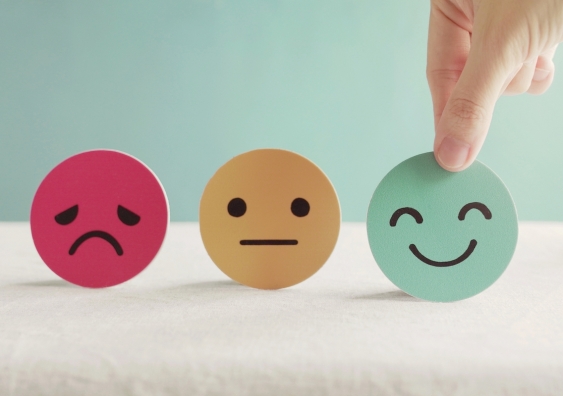Can you take sick leave for a mental health day?
When it comes to leave entitlements and mental health, there are some rights and obligations both employees and employers should be aware of.
When it comes to leave entitlements and mental health, there are some rights and obligations both employees and employers should be aware of.

Ben Knight
UNSW Media & Content
(02) 9065 4915
b.knight@unsw.edu.au
Chances are there will be some mornings when you’re just not in the right headspace to come to work. On those days, you’ve maybe wondered whether it’s okay to take some time off to recover like you would for something like COVID or the flu.
Dr Alice Orchiston, lecturer at the School of Law, Society & Criminology, UNSW Law & Justice, says whether you can take such days using sick leave is becoming a more common question.
“Mental illness is a leading cause of all absences from work, as well as a significant source of workers’ compensation claims,” Dr Orchiston says. “But it is a complicated area with intersecting rights and obligations.”
While mental health or stress leave isn’t an official type of leave, taking a mental health day could be considered a valid use of paid personal/carer’s leave under the .
All employees, except casuals, are entitled to , which they can take if they can’t work due to a personal illness or injury, or to care for immediate family or a sick household member. The yearly entitlement for personal/carer’s leave is 10 days for full-time employees (pro rata for part-time), accruing from the first day of employment.
“If someone is ‘unfit to attend work’ because they are experiencing stress or a mental health issue that day, then that is covered by the entitlement, as long as they comply with the notice and evidence requirements,” Dr Orchiston says.
To take personal/carer’s leave, employees must tell their employer of their intention to take leave and the expected duration. The employer may also require proof from the employee, such as a signed medical certificate to verify the leave.
“Employees must advise the employer ‘as soon as practicable’ that they’re taking leave, which might be after the leave has commenced,” Dr Orchiston says. “The employer can also require evidence for as little as one day off, which must satisfy ‘a reasonable person’ the leave is being taken for the intended purpose. That might not always be a medical certificate issued by a doctor, it can be a statutory declaration signed by a Justice of the Peace.”
‘Unfit to attend work’ differs from ‘chucking a sickie’. If you simply don’t want to work one day, that wouldn’t fall under personal/carer’s leave.
“If someone is ‘unfit to attend work’ because they are experiencing stress or a mental health issue that day, then that is covered by the entitlement, as long as they comply with the notice and evidence requirements.”
Where it can get tricky is making an appointment to see a medical professional.
“Getting an appointment with a psychologist or psychiatrist can be difficult outside of ordinary working hours. As it stands, personal leave currently doesn’t extend to a situation where someone is fit to attend work but needs to take an absence from work to attend such an appointment,” Dr Orchiston says.
For periods of illness exceeding personal leave accrued, other forms of paid leave entitlements, such as annual leave, can be used, even though it’s not expressly designed for that purpose.
“Some enterprise agreements or individual contracts may offer additional personal/carer’s leave, but it depends on the industry and sector,” Dr Orchiston says. “Once you exhaust all paid leave, unpaid leave is the remaining option.”
Employees also have some protections for temporary absences from work. Under the Fair Work Act, an employer can’t dismiss an employee because of a temporary absence from work if the employee takes personal leave and complies with the notice and evidence requirements. Employees are also protected from ‘adverse action’ based on exercising a workplace right – including the right to take personal leave.
“An employer cannot terminate, demote or discipline an employee for taking personal leave,” Dr Orchiston says. “There’s also no flexibility for an employer to deny access to personal leave if an employee is actually unfit for work.”
But if an employee’s absence extends for more than three months, and the employee is not on paid personal/carer’s leave for the duration, the employee could be dismissed at that point.
Employees have other rights under disability discrimination law.
“It is against the law for an employer to discriminate against an employee with disability,” Dr Orchiston says. “Mental illness can be covered by the definition of disability, and while there are some exceptions, employers are required to make reasonable adjustments to help the employee to perform their role.”
Employers also have a legal duty to ensure workers’ health and safety, so far as is ‘reasonably practicable’, which covers both physical and psychological health.

Employers have a legal duty to ensure workers’ health and safety including psychological health. Photo: Shutterstock.
Despite this, it’s not unusual to feel uncomfortable discussing mental health with an employer, even though mental illness is very common.
“The prevailing stigma around raising these issues at work can make employees wary of judgement,” Dr Orchiston says. “So, employees may not want their mental health status to be known, and it shouldn’t be considered separate from any other illness. Employees don’t need to provide details of why they’re taking personal leave – the medical certificate or statutory declaration can simply refer to a ‘medical condition’.”
Rather than having specific mental health or stress leave, Dr Orchiston says minimum paid leave entitlements could instead be expanded. In particular, there is a critical need to extend paid leave entitlements to those in insecure working arrangements.
“Ideally, employees would have more access to paid leave, particularly given how COVID-related illness, for example, could easily exhaust someone’s existing entitlements,” Dr Orchiston says.
“Millions of Australian workers are also excluded from any paid leave because they work as independent contractors or as casuals.
“It’s something Victoria is looking to address at the moment, with a pilot scheme giving up to 38 hours of paid sick leave to casual and contract workers in hospitality, retail, sales, cleaning, security, aged care and disability care, which is a step in the right direction.”
Read more:
While broaching a conversation about mental wellbeing in the workplace can be difficult, if it’s affecting your work, it’s worth raising, Dr Orchiston says. It’s also something that any manager should be prepared for and open to.
“If you’re comfortable, reaching out to a trusted manager or HR representative can be the best first step. If you’re a union member, you could contact your union first to get advice.”
Dr Orchiston says employers also benefit when employees are happy in the workplace and feel that their mental health is supported.
“Happier employees mean improved productivity and performance, reduced absenteeism and fewer workers’ compensation claims, which has a flow on to reduced insurance costs. They’re also less likely to resign, which reduces recruitment costs.”
Employers can and should provide various mental health support services, like access to employee assistance programs, Dr Orchiston says. Some, like Australia Post, have even to advocate for employee wellbeing.
“Mental health is not something static. You can’t just offer a wellness initiative or an awareness day once a year and hope that’s enough. It’s something that’s constantly evolving and needs constant attuning,” Dr Orchiston says.
“Ultimately, creating a workplace environment where employees are comfortable to talk about how they’re feeling if it’s affecting their work, and having employers ready with practical support to help their employees in those situations, is the right thing to do.”
In an emergency call triple zero – 000.
For help and support, call: